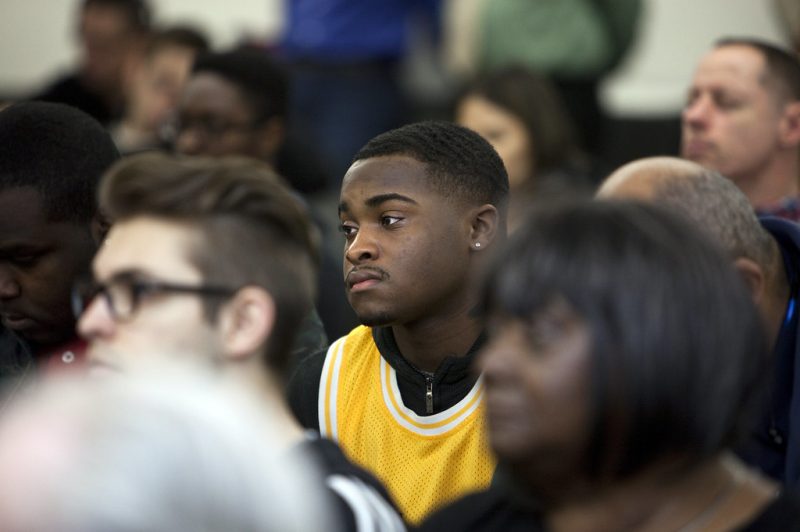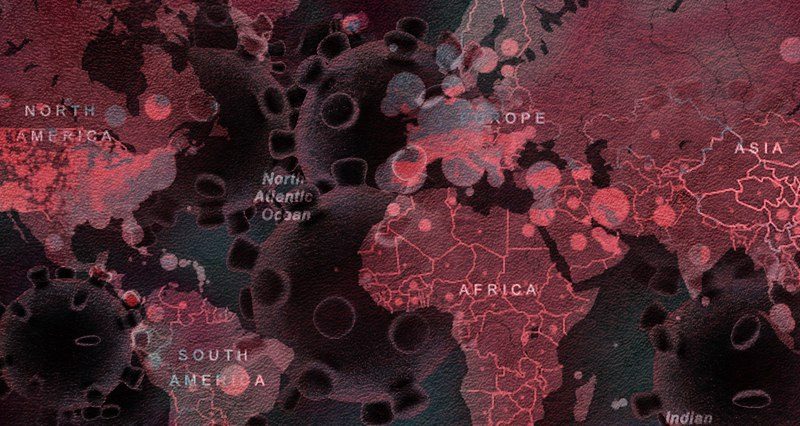On Friday March 28, the Illinois Department of Public Health published data on the novel coronavirus outbreak. African Americans were shown to be the only community hit by disease disproportionately, being affected at several times the rate of other race groups. Black people make up 14.6% of the state’s population, but 28% of the confirmed cases of the coronavirus. Meanwhile, white people make up 76.9% of the Illinois population but only 39% of the confirmed cases. The third largest category is Latinos who comprise 17.4% of the state population, and 7% of cases. A similar situation has also been observed in two other states that have disclosed information on the racial composition of coronavirus patients: Michigan and North Carolina. Moreover, the data shows that Black people are dying from COVID-19 in greater proportions than all other races. Thus, in Michigan, African Americans account for only 14% of the state population, but 40% of all deaths from the coronavirus.
Michigan has just started reporting on coronavirus cases by race.
African Americans are 14% of that state's population but 40% of deaths.
This pandemic is reflecting–and exacerbating–inequality.
NYC should publish this data as well, so we get the picture here. pic.twitter.com/u0UeWZfJvA
— Mark D. Levine (@MarkLevineNYC) April 3, 2020
In Illinois, black people account for 14.6% of the state’s population, yet 41% of all coronavirus deaths. In Milwaukee, black people make up 26% of the population, but 50% of coronavirus patients, and a whopping 81% of all deaths from the disease. In Chicago, African Americans are six times more likely to die from Coronavirus than white people. 30% of the population of the city is black, yet black people account for 68% of all deaths from the coronavirus. In North Carolina, African Americans make up 21% of the population, but 37% of coronavirus patients.
On Monday, the governor of Louisiana John Bel Edwards told the press that over 70% of people killed by COVID-19 in Louisiana are African Americans.
Racial inequality
According to Dr. Lisa Cooper, a medical expert and social epidemiologist with the Johns Hopkins Bloomberg School of Public Health, the main reason African Americans are hit disproportionately are social and race inequalities in the US.
African Americans are traditionally poorer, have higher unemployment rates and cannot afford quality treatment and medicine. As a result, there are more black people with chronic diseases and weakened immunities, both of which lead to higher mortality rates among those infected with the coronavirus. According to the Center for Disease Control and Prevention, black people have the highest death rate from heart disease: some 54% of adult African Americans have high blood pressure. The risk of diabetes among African Americans is 77% higher than among white people. The black community is also disproportionately hit by obesity and asthma.
The second reason for high death rates among Black people infected with coronavirus is the high cost of medicine in the US. The black population has far less access to quality treatment, and are often neglected by the state. As a result, they utilize clinics with far worse conditions, which naturally leads to higher mortality rates. According to the study published in Health Affairs in 2017, the US is the world leader in health inequality. In 2018, 9.7% of African Americans had no health insurance (while the number is only about 5% for whites). African Americans were more likely to be covered through employer-sponsored or private health insurance – according to a report from the Century Foundation.

Flickr
The southern states have the largest populations of African Americans, yet these are the same states that did not expand government Medicaid in compliance with the Affordable Care Act (ACA, Obamacare). “In states that have not expanded Medicaid under the Affordable Care Act (ACA), African Americans and other people of color are most likely to fall within a coverage gap-meaning they earn too much to qualify for the traditional Medicaid program, yet not enough to be eligible for premium tax credits under marketplace plans,” the report concludes. However, as noted by CNBC, those who do go to the hospital with coronavirus must prepare to pay from $42,486 to $74,310 if they do not have health insurance or if their insurance company decides that the health care they received is not included in the list of services covered by their insurance. Needless to say, African Americans are the least protected under this system. Many just can’t afford to pay for treatment.
However, it turns out that even if they do have the money, they are still likely to be treated worse. In 2005 the Institute of Medicine – a US non-profit organization, released a report which highlighted how “racial and ethnic minorities receive lower-quality health care than white people-even when insurance status, income, age, and severity of conditions are comparable.” The disparity falls directly around racial differences.
A racial time bomb
Dr. Camara Jones, a family physician, epidemiologist, and visiting fellow at Harvard University, told the site ProPublica: “COVID is just unmasking the deep disinvestment in our communities, the historical injustices and the impact of residential segregation. Racism is the cause.” Charles M. Blow, an opinion writer for the New York Times, says that Americans “may be waiting for a racial time bomb to explode with this disease.” He notes that the coronavirus might seriously hit the states of the American south where most of the black population still lives. Meanwhile, the situation for African Americans is in some ways even worse than for those still living on the African continent! Ironically, in the wealthiest state on earth, black people are more likely to get sick and die from coronavirus than they are in destitute African countries. The main reason for this is the country’s high population density – African Americans live predominantly in cities and have a higher median age (the population of African countries is mostly young while the average age of African Americans is 38 years).
Finally, many African countries at least some have experience and infrastructure to deal with pandemics. In the United States, this is definitely not the case. Finally, in most African countries black people are not treated as second-class citizens.
The Government hides the truth
At the same time, as Ibram X. Kendi from the Antiracist Research and Policy Center at American University notes, the American state does not disclose much information about the racial breakdown of coronavirus patients: “The Centers for Disease Control and Prevention’s information site does not offer racial data. Neither does the Johns Hopkins University database used by CNN, The New York Times’ count, nor the COVID Tracking Project. Few states, municipalities, or private labs are releasing their data by race.” US Senator Elizabeth Warren and Representative Ayanna Pressley called on the administration of the President Trump to address racial issues related to the novel coronavirus pandemic. However, the administration has still not provided the relevant data to the public, and is unlikely to do so.
It is not difficult to assume that the US’ authorities are afraid of the political consequences of disclosure of such information, including potential unrest. However, the public needs to pay close attention to the problem, not only because black lives matter, but because the problem cannot be contained if it is only dealt with among one section of the population.
Now that the US has become the epicenter of the Coronavirus epidemic, this problem relates to the life and death of hundreds of thousands, if not millions, of African Americans. The disproportionate number of black people affected by the coronavirus has a domestic and international dimension. It demonstrates that American society has been and remains racist. The US has no right to demand other countries adhere to human rights or improve their treatment of certain ethnic minorities until it is able to abandon its own racist policies.









Leave a Reply